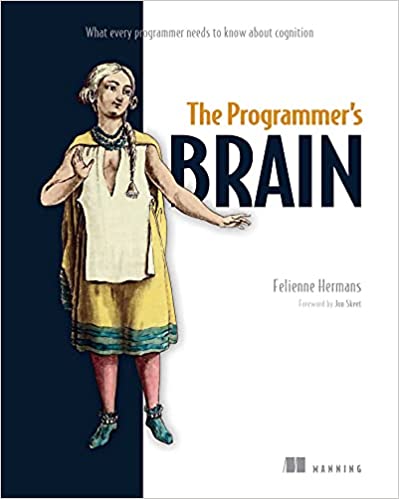The Programmer's Brain
Reviewed by Greg Wilson / 2021-10-02
Keywords: Book Review, Psychology of Programming
Nothing in software engineering makes sense except in light of human psychology.
— paraphrasing Theodosius Dobzhansky
The Programmer's Brain is the most interesting and useful book I've read about programming in several years. In it, Prof. Felienne Hermans gives a readable introduction to key findings in cognitive science, then explains how they relate to things programmers do and build. The table of contents alone should excite most working developers:
-
Part 1: On Reading Code Better
- Decoding your confusion while coding
- Speed reading for code
- How to learn programming syntax quickly
- How to read complex code
-
Part 2: On Thinking About Code
- Reaching a deeper understanding of code
- Getting better at solving programming problems
- Misconceptions: bugs in thinking
-
Part 3: On Writing Better Code
- How to get better at naming things
- Avoiding bad code and cognitive load: two frameworks
- Getting better at solving complex problems
-
Part 4: On Collaborating on Code
- The act of writing code
- Designing and improving larger systems
- How to onboard new developers
I could go on (and on), but really, you should just be placing your order right now and figuring out how to use these ideas to improve your work and/or teaching.

Hermans2021 Felienne Hermans: The Programmer's Brain: What Every Programmer Needs to Know About Cognition. Manning, 2021, 9781617298677.
Your brain responds in a predictable way when it encounters new or difficult tasks. This unique book teaches you concrete techniques rooted in cognitive science that will improve the way you learn and think about code.